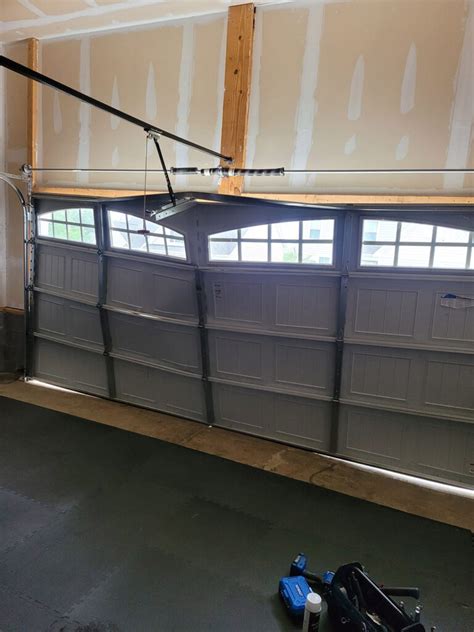Garage Door Repair: Maximize Your Investment
Your garage door is more than just a barrier; it's a significant investment representing a substantial portion of your home's curb appeal and security. Regular maintenance and prompt repairs are crucial not only for preserving its functionality but also for maximizing its lifespan and protecting your investment. Ignoring minor issues can lead to costly major repairs down the line, potentially jeopardizing the safety of your family and property. This comprehensive guide will equip you with the knowledge to properly care for your garage door and ensure you're getting the most out of your investment.
What are the common garage door problems?
Many common garage door problems stem from neglect or a lack of understanding of the system's mechanics. These range from minor inconveniences to serious safety hazards. Common issues include:
- Broken springs: These are often the most costly repairs, as they are under significant tension and require specialized tools and expertise to handle safely.
- Damaged cables: Similar to springs, damaged cables pose safety risks and require professional attention.
- Faulty rollers: Worn or damaged rollers create friction and noise, gradually degrading the door's performance.
- Bent tracks: Misaligned or bent tracks hinder smooth operation and can cause further damage.
- Malfunctioning opener: A malfunctioning opener can prevent the door from opening or closing, sometimes requiring a simple repair or a complete replacement.
- Noisy operation: Grinding, squeaking, or rattling sounds often indicate worn parts needing lubrication or replacement.
How can I prevent garage door problems?
Prevention is key to maximizing your investment in a garage door. Regular maintenance is inexpensive compared to emergency repairs. Here's a proactive approach:
- Regular lubrication: Lubricate moving parts like rollers, hinges, and tracks at least twice a year using a silicone-based lubricant. This reduces friction, minimizes wear and tear, and prevents noisy operation.
- Inspect the springs and cables: Regularly inspect for signs of wear, fraying, or damage. Immediate professional attention is necessary if you notice any issues.
- Check the tracks: Ensure the tracks are aligned and free of debris. Straighten any bends you may find.
- Test the safety sensors: These are crucial safety features. Test them regularly by obstructing the sensor beam; the door should reverse.
- Clean the door: Regularly clean the door surface to remove dirt and grime that can accumulate over time.
How often should I perform garage door maintenance?
A proactive maintenance schedule is crucial. Aim for a thorough inspection and lubrication at least twice a year, ideally in spring and fall. This routine check-up will catch minor issues before they escalate into major and costly problems.
What are the signs I need professional garage door repair?
While some minor repairs are DIY-friendly, many issues necessitate professional intervention. Signs that you need to call a professional include:
- Broken springs or cables: These are extremely dangerous to handle without the proper tools and expertise.
- Severe damage to the tracks: Significant bending or misalignment often requires expertise to correct.
- Complex opener issues: While some opener malfunctions are simple fixes, others require specialized tools and knowledge.
- Safety concerns: Any issue affecting the safety sensors or compromising the secure operation of the door necessitates immediate professional attention.
How much does garage door repair typically cost?
The cost of garage door repair varies significantly depending on the specific problem, the age of your door, and the complexity of the repair. Minor adjustments might cost a few hundred dollars, while major repairs like spring or cable replacements can be much more expensive. Getting multiple quotes from reputable companies is advisable to ensure you're getting a fair price.
How can I find a reliable garage door repair service?
Finding a reputable service provider is crucial to ensure quality repairs and protect your investment. Look for companies with positive customer reviews, extensive experience, and appropriate licensing and insurance. Check online reviews and consider asking for references.
By following these guidelines, you can ensure your garage door remains functional, safe, and aesthetically pleasing for years to come, maximizing your investment and preserving the value of your home. Remember, preventative maintenance is always cheaper and safer than emergency repairs.

